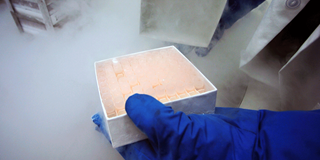CRISPR-Cas – a gene-editing technique that is far more precise and efficient than any that has come before it – is poised to change the world. But ensuring that those changes are positive – helping to fight tumors and mosquito-borne illnesses, for example – will require scientists to apply the utmost caution.
HONG KONG – Since its introduction four decades ago, genetic engineering has been a source of high hopes for health, agriculture, and industry. But it has also provoked deep anxiety, not least owing to the laborious nature of the genome-editing process. Now, a new technique, CRISPR-Cas, offers both precision and the ability to modify the genome text at several places simultaneously. But this has not eliminated reason for concern.

HONG KONG – Since its introduction four decades ago, genetic engineering has been a source of high hopes for health, agriculture, and industry. But it has also provoked deep anxiety, not least owing to the laborious nature of the genome-editing process. Now, a new technique, CRISPR-Cas, offers both precision and the ability to modify the genome text at several places simultaneously. But this has not eliminated reason for concern.